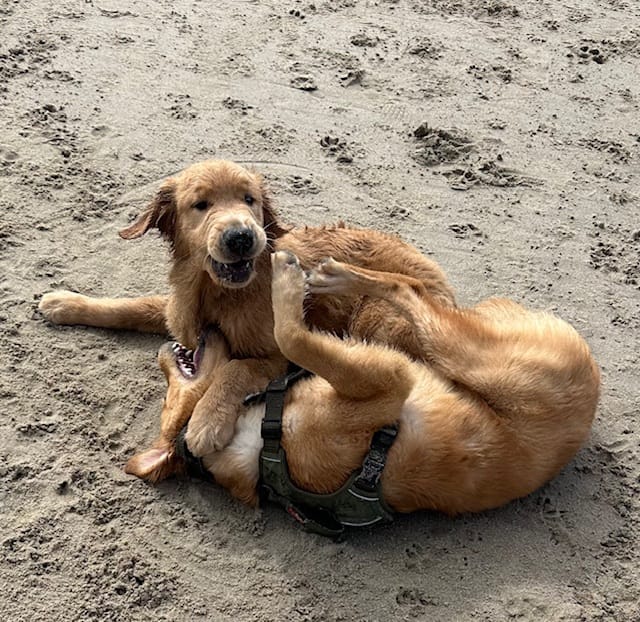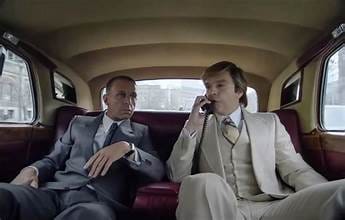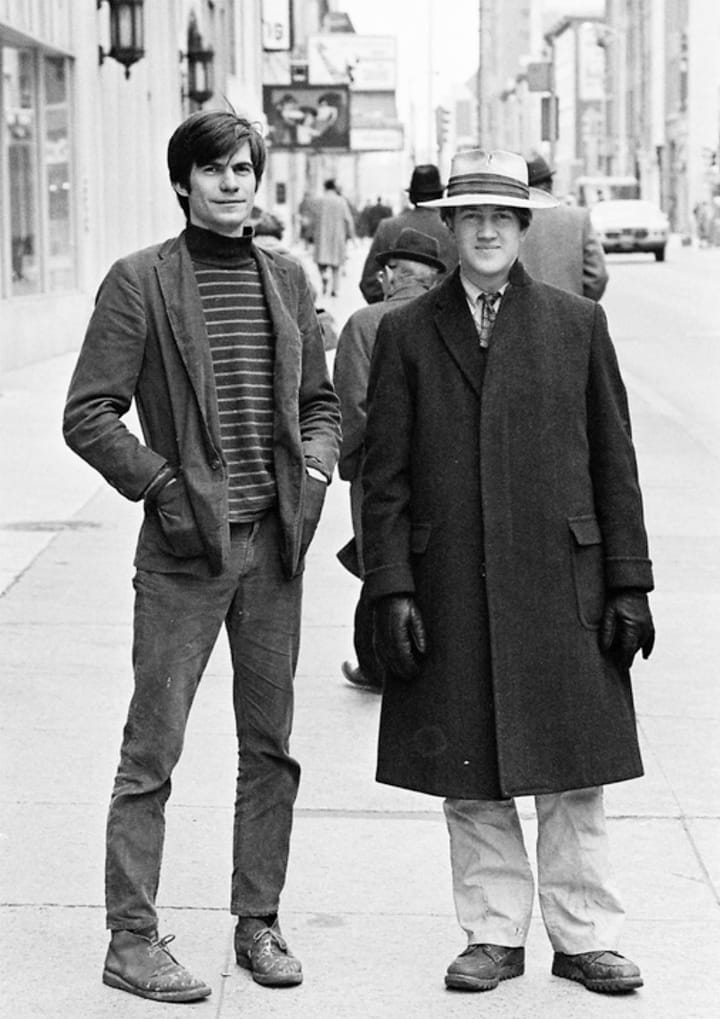Jake Gyllenhaal Keeps the Faith as "Road House" Rocks Once More

Dalton: Well, the owner’s havin’ a little trouble, I guess, and I’m…just here to clean it up.
Charlie: That kinda sounds like the plot to a western.
This exchange between Jake Gyllenhaal’s Elwood Dalton character and his young protégé-to-be Charlie—a wised-up, African-American lass who is the one-girl Greek chorus of “Road House”—quite neatly sums up the film when we hear it quite early on as Dalton arrives in her picturesquely beat Florida Keys hamlet.
Riding on considerable hype from Prime, overcoming decidedly mixed reviews and other carps to surge to the biggest Prime streaming open ever at fifty million worldwide views in the two weeks since it dropped online on March 21, the picture indeed stays close to its roots. Anyone who’s ever seen young Brandon DeWilde’s Joey calling for Alan Ladd’s Shane to come back in George Stevens’ 1953 film will see how Charlie and Dalton bookend the story in Much the same way,
The movie is poised between violent fisticuffs—Dalton is a washed-out former UFC cage fighter--and a tenderhearted but ironic temperament, and the film and Gyllenhaal’s performance in it are cannier than the ample naysayers may care to admit. Charlie, who’s a winning mountebank for the bookstore she runs with her single dad, drills down: “You’re intrepid,” right?
And Dalton takes a beat. He’s clearly going to be our hero but he believes deep in his soul he’s a villain, for reasons that gradually come to the fore. “Honestly,” he replies, “I couldn’t tell ya.”
Director Doug Liman, who made the first and best of the of the Jason Bourne series (“The Bourne Identity,” 2002), will show us the answer in due course. He sought to disrupt but just possibly enhanced—the streaming company’s unveiling of the film at SXSW on March 8 by issuing a statement to Deadline that he would boycott the premiere, angry that the company would offer no theatrical release as he insisted was their promise. (He then turned up to a post-screening crowd and smiled through a standing ovation and the crowd’s floor-stomping chants of “Doug! Doug! Doug!”). Subsequently at least one report postulated that Amazon Prime had offered Liman a budget of $60 million to make it for movie houses, $85 million for straight-to-Prime streaming.
Owen Glieberman of Variety gave the film a rave, writing "If the first Road House was a better Chuck Norris movie, the new one is something more uncanny—it's like a Jason Statham movie directed by Jonathan Demme.” Also: “There’s something cathartic about how “Road House” serves up bone-crunching vengeance with an island party-tavern beat.”
The audience reaction (which for all the 1.5 billion internet hits and the yawps of the fan contingent hovers under 60 points in review ratings) seems to be borrowed from the movie’s tag line of “Take It Outside”.
Count in Gyllenhaal himself who publicly contradicted Liman’s account and amid applause in that SXSW loveliest.
That bouncer’s rule of engagement and it’s companion dictum “Be nice” are of course from the rules enunciated by Patrick Swayze in the original, 1989 “Road House,” which went from mutt status to a durable cult rep as perhaps the best bad movie ever designed for what was once the drive-in crowd. What Liman and perhaps even more diligently Gyllenhaal have decided to do is deeply clone the DNA of Swayze’s character, throw in a little Zen edge from Swayze’s Bodhi role in “Point Break,” and give us the psychically scarred but ultimately can-do figure who’s in almost every scene of 2024’s “Road House”. Gyllenhaal is enough of a creative sponge to give us a flavor of Sam Elliott’s Wade Garrett in the original—a guy who will remark with fake empathy on how much he’s just hurt you.
With much respect to Billy Magnusson’s acting as the Murdaugh-scale, douchebag son Ben Brandt and to Jessica Williams (she’s shown her genius with a smart-ass line in “Shrinking,”) as bar owner Franke, the performance likely doomed to be underrated here is from Arturo Castro, an actor often well-down the call sheet who is always kept busy on film and TV by smart casting directors. With much credit to co-screenwriters Anthony Bagarozzi and Chuck Mondry, one can lap up Castro’s improv licks as he eagerly flaunts his rather dim perceptions, as in a back and forth about Dalton with Ben:
“He acts all nice and shit, like he’s Mister Rogers or something.But then, man, he hauls off, he hauls off. He beats the living shit outta you. So, really interesting guy overall.
Ben (far too aggravated to even give the slag much emphasis): “Brilliant analysis.”
A feature of Gyllenhaal's performance is he holds so much back—again, for reasons we discover—in setting up an air of mystery that make his occasional combats all the more savory. (Though not necessarily as seen in in one of fthe film’s selling points, the presence, sometimes suspiciously CG'd and always overplaying, of actual mixed martial art artist Conor McGregor.)
While always in service to his character, taunting our lean-in with a near-suicidal self-loathing that makes him hard to cozy up to even for the beautiful and sardonic Ellie, he incarnates vivid film history. The role resonates with what sociologist Richard Slotkin posits in his landmark. 1992 National Book Award nominee “Gunfighter Nation”: “Shane arrives from outside, and his past is concealed. His motives for helping the farmers are chivalric and romantic. …they appear to be expressions of his nature...he is an aristocrat of violence, an alien from a more glamorous world.”
Not just the gunfighter ethos but other cinema touchstones like “Winchester `73” echo through the script, not just echoing the “outlaw” pictures (also called the “town-tamer” sagas, like John ford’s “My Darling Clementine”) but murkier sagas: “Like the revenger, the gunfighter is psychically troubled and isolated from normal society by something “dark” in his nature and/or his past.”
“Are you really that afraid?” asks Frankie before we are “read in” to Dalton’s secret, and he mutters back, “Yes, I am afraid. More than you could ever understand.”
“The impression of latent gentility,” wrote Slotkin of Ladd's Shane, "is confirmed by the quiet courtesy of his speech, the smoothness of his manners.” Without getting too grandiose about a film that at some level turns on sprawling bar fights, it’s not a big stretch to liken Dalton the cage fighter to Knox the (however farcical) assassin. Slotkin: “He is a killer by profession, usually for pay. The existence of his profession is in itself an implicitly hard-boiled commentary on the nature of American society.”
A subtext of the film is that guns and gunplay are not fetishized, as in say, the Wick carnage scenes. (One solution Dalton finds is to simply break a gunman’s trigger hand.). A handgun is, however fit enough for staging a story involving a corpse. “I am afraid,” Dalton tells a cop working for the town’s corrupt schemer, “I’m afraid of what happens when somebody pushes me too far. Somebody just like you. ‘Cause I know what happens next…”
Right about when we viewers are thinking a love interest could tweeze out his origin story, Dalton meets Ellie in her role as nurse and engages his gear as what Time calls “one of the most casually soulful actors we’ve got.”. After he dumps off a load of battered thugs to her ER, she calls him a “rage-filled dickhead who hurts people for fun. ,” he ripostes, owning it, somehow: “Well, technically, I hurt people for money.”
Gyllenhaal has the smarts to move through the story with his bad memories and placid half-smile, leaving us full of questions. Before he’s clued in to Brandt’s schemes and the dufus local bikers who target him, Dalton asks, “Why all the fuss? I’m just some guy.”
Life has chastened him, and the thing that most scares him is his own nightmares. (For Swayze, the controlling ethic was his reading about “Man’s search for faith. That sort of shit,” but the latter-day Dalton is more attuned to applicable wisdom like wound care and “Crocs hide their food”)
Finally, Charlie stands outside her bookstore in the transformed community as the big Greyhound rolls up to take away the man who accomplished so much more for this Florida Keys backwater than she’d made her first guess: “Local townsfolk send for a hero to help clean up the rowdy saloon.”
Dalton has his bare possessions sitting in his suitcase as she speaks to him:
“Hey. So, this is it? You’re just gonna…You’re just gonna ride off into the sunset?
Dalton: That’s always how the story ends, right?
Charlie No, not always. Sometimes the hero stays and…makes his own little homestead.
Dalton: I don’t think I’m the hero in this particular story, Charlie.
Charlie: So, maybe you’re not the hero. I got news for you. You ain’t the villain either.
It seems, after all these years of trying to “Be nice,” man’s search for faith is sometimes rewarded.





Comments ()